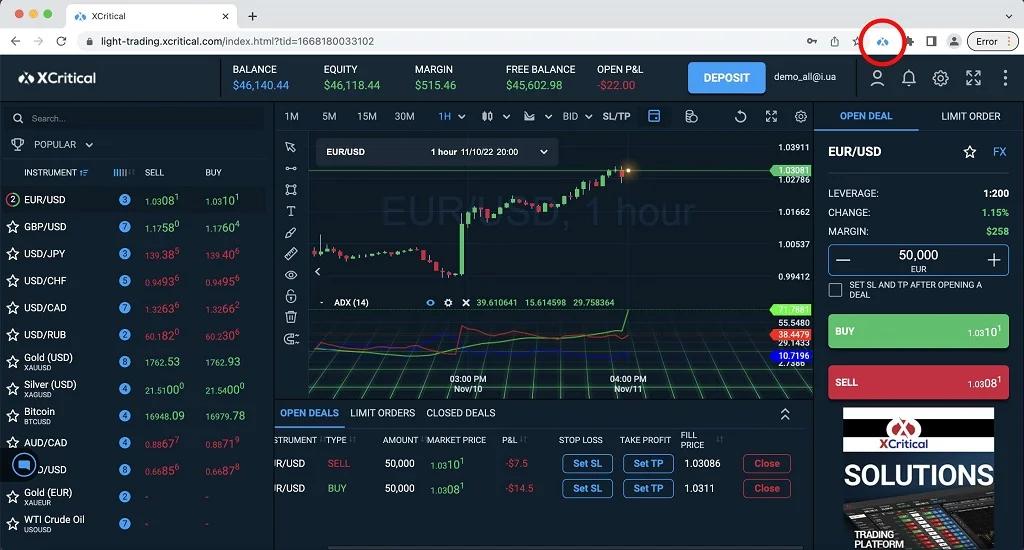Content
For instance, some CRMs charge on a per-record basis — you pay for each additional set of 1,000 (or 10,000+) people in your database. E.g., store up to 5 gigabytes of data for free, then pay for each additional gigabyte. CRM software may also charge for functionality — pay $50/user/month for contact, company, and deal management; pay an additional $50 for the “Enterprise” product that includes lead scoring and reporting. In general, a CRM works best for considered purchases or service providers. Fine jewelers, landscapers, realtor firms, lawyers, or accountants can all benefit from a good CRM. B2B companies, especially those with longer sales cycles like SaaS, also benefit from a system that simplifies business processes.
Good CRM solutions can supplement their account and contact data through third-party data sources so that all information is complete and up to date. So, if a contact has moved to a new job, your sales, service, and marketing teams know about it, allowing them to maintain and rebuild these important relationships. At some point, all companies need to enter new markets or introduce new products. But if you are struggling to keep up with the business you are generating now, you might need to invest in an integrated CRM solution. Additionally, online reputation management tools can be crucial to help steer goals as well as improve public image. Whether your CRM software already includes reputation management or you get it through an integration, consider how customer feedback can shape your brand’s image to the outside world.
Increase collaboration between teams
Upselling is more successful when you understand who your customers are and what they want. Like a bartender who knows what the regulars typically order, marketing and sales can be strategic about when and how they jump into action, rather than throwing everything at the wall and hoping something sticks. Teams can easily collaborate when everyone is using the up-to-date information from https://xcritical.com/ your sales dashboard. Customers hate repeating themselves, so when departments share information internally, the customer experience improves. Marketers and salespeople use the same data to craft consistent messaging, so no one is confused about who’s making what promises. Each type of customer management software serves a unique purpose and provides a specific benefit to your customers.
Some of the tools like Marketing automation, Workflow Automation, Analytics, AI in CRM, Lead management and other tools when integrated makes the CRM Software much more effective. Often companies find themselves wasting their marketing budget due to poor planning and the failure to identify the real target audience for their brand. A disconnect between sales and marketing teams can hamper these efforts. When your data is organized and managed by a CRM platform, you have a more comprehensive understanding of your customers, which, in turn, leads to more aligned messaging.
It’s not a CRM in and of itself, but rather a lightweight-yet-powerful tool that integrates with more broad featured CRM platforms like Zendesk and Salesforce. Android and iOS apps keep your sales squad humming along on the go, with access to in-depth sales information any time of day. Graphical cues and a drag-and-drop interface let you move leads through the sales pipeline and determine which are most likely to close. Agent performance tracking tools, meanwhile, are very useful for evaluating and incentivizing your team, scheduling team members, and planning schedules for slow and busy periods. Having an all-in-one sales CRM is great for effectively managing all-things-sales. That includes leads, contacts, and opportunities, as well as accounts, quotations, and proposals.

Your contacts stay organized, and your sales team knows exactly what to do next for each prospect. The collaborative features of a CRM require buy-in from multiple departments throughout the company to work properly. Therefore, consider collecting a feature “wish list” from department leaders as you review CRM options. Have your management team members individually answer each question and consider all their feedback when deciding. If this doesn’t happen, you’ll encounter resistance and slow adoption. Analytical CRM solutions often focus on measuring and increasing customer satisfaction and customer retention rates.
The rise of mobile CRM
According to a study conducted by the University of Oxford, satisfied workers are 13% more productive. When content with their tasks and working conditions, employees tend to work faster and, more importantly, convert more. CRM systems automate a range of tasks and processes such as manual data entry and data enrichment, letting employees focus on more important, money-making tasks. The difference between a lead that converts and one that doesn’t is the quality of the relationship you build with them.
- While social media marketing and SEO seem like two separate practices, when used together, they can enhance any organization’s …
- Other added benefits include no maintenance or upkeep costs, greater accessibility to your data when needed and the flexibility to scale up or down with ease.
- In both cases, CRM reporting provides the documentation needed to take action.
- It has a lot of potential applications, from managing freelancers to running a music label to handling photo shoots, film productions, and building up model agency rosters.
- News magazineTimeuses it to organize all of its production schedules.
- So no matter where your business is at this point, here are the reasons that remain true and why you need to use a CRM to help you manage your business with a 360-degree view.
This ensures that your employees have all they need to know about the customer at their fingertips and can provide a better customer experience, which tends to boost customer satisfaction. With a consolidated view of every prospect and customer, a CRM system is then used to manage day-to-day customer activities and interactions. From a marketing perspective, this means engaging your prospects with the right message, at the right time, through targeted digital marketing campaigns and journeys. For sales, reps can work faster and smarter with a clear view of their pipeline and accomplish more accurate forecasting. Commerce teams can quickly launch and scale ecommerce — from online orders to curbside pickup — for their consumer shoppers and business buyers .
Apptivo
From basic charts to advanced analytics insights, such as spotting anomalies in your business, an inbuilt analytics engine inside CRM can help enterprises gain a crucial competitive advantage. From managing an account’s contact information to staying up to date with business deals, payments, and reports, B2B companies do best with a sales CRM in place. It helps them create a common platform to keep their partners, vendors, and other stakeholders of their business in sync with each other. There are multiple vendors in the market who offer CRM software that are specifically built from the ground up to cater to the niche requirements of different industries. Dedicated CRM software are available for industry verticals like real-estate, healthcare, insurance, financial services, media agencies, hospitality and more. The software’s user interface is minimal and functional, with no room for nonsense.
Additionally, 13% of organizations say that one of their top sales priorities is investing in CRM. Resonant is a leading Salesforce partner who specialies in building digital experiences using Sales Cloud, Service Cloud, Communities, Pardot, Marketing Cloud and more. So no matter where your business is at this point, here are the reasons that remain true and why you need to use a CRM to help you manage your business with a 360-degree view.
Nowadays, we all live in mobile world and mobile CRM has raised popularity just bacause of anyone can use mobile crm who needs to interact with customer data. Mobile CRM can be beneficial if you are addressing sales productivity, sales effectiveness, timelier follow-up of leads or improved lead conversion rates. When you choose Mobile CRM you need to consider few things like employee buy-in, ease of deployment, ease of use, security, user experience and advanced feature set. I have read somewhere that companies offering cloud based crm solutions from 2010–2012, revenue has increased from $8.7 billion to $16.7 billion.. I agree that the CRM industry has seen astounding growth in recent years and businesses will continue to increase investment in CRM solutions. The combination of traditional CRM components, such as marketing automation and SFA with more specialized tools, boost revenue, and retain customers.
The right CRM platform has what you need out of the box or empowers easy integration if it’s not included. Engaging meaningfully with current customers and re-engaging past patrons can be challenging for any small business. But the right CRM software can — and should — empower you to do just that while creating a more efficient flow for your team in the process.
Any CRM system can give you numbers and analytics, but you need to know how to interpret them and where to pivot to get the most out of your customer relationship management experience. This option comes with a full set of sales tools for growing sales teams. Customer Relationship Management is a business strategy used by companies that want to leverage technology to better manage their relationships with prospects and customers. Companies will use a variety of applications as part of their CRM strategy.
Integrations are a must-have when it comes to CRM software that goes beyond internal record keeping. Other integrations, like loyalty programs and SMS messaging, are vital tools to consider for now or for future growth and scaling. Close’s easy-to-use platform helps sales reps maximize inside sales opportunities. Customer relationship management systems unify all those systems.
Analytical CRM Solution
Other KPIs you should track include data that measures your net promoter scores , customer acquisition costs , length of sales cycles, marketing campaign effectiveness and email distribution list growth. At a professional services firm, nothing proves more valuable than relationships with clients and industry colleagues. Your loyal clients build your company’s reputation by providing business referrals and writing positive reviews.
Using WORK’s integrated feature set, they can quickly solve contact and lead management and sales tracking concerns.Click here to read more. Any businesses that want to show their customers that they are a priority – customers like to feel as though they are wanted, and using collaborative crm CRM can do this. This increases customer satisfaction by helping them resolve issues faster and more completely. It might seem like something small to a business, but when it happens in reality to customer it will stick with them and give them a better customer experience.
Benefits of CRM Systems
Another important task they perform is to identify the best time to promote and present services to those customers and use the results of such strategies to further expand the list of prospects. CRM systems also have a positive effect on efficient resource allocation, as businesses relying on reputed software are also the favorites among profitable market groups. Put into perspective, a CRM product will help you target the right leads at the right time and with the right resources. In addition to the three main types of CRM software and the features they provide, it’s also possible to single out other, less common CRM system formats such as social CRMs, sales CRMs, and campaign management CRMs.
See 4 examples of businesses using CRM.
Salesforce is probably going to take a bit of time to learn, but there’s a free online training center called Trailhead that is very helpful and approachable. Mixpanel offers a free ‘core analytics’ version with the usual storage limitations. CRM website integration allows you to develop a more accurate portrait of customer and lead behavior. Streak’s platform is one of the only fully integrated Gmail CRMs. It lives inside your Gmail inbox and includes all the G Suite apps too.
Online and Offline Business Set up and Purely E-commerce
Perhaps most importantly, modern CRM solutions support the complex workflows of fast-growing sales teams. CRM systems keep your team in sync, facilitate more effective use of time and eliminate many of the mindless tasks that take up time without adding value. Social media in CRM involves businesses engaging with customers directly through social media platforms, such as Facebook, Twitter and LinkedIn. Social media presents an open forum for customers to share experiences with a brand, whether they are airing grievances or promoting products.
It also incorporates photos and other attachments, with the free version offering users 2 GB of storage. The workflow management database also allows users to link and interpret data from different sets fast. The platform’s communications toolkit includes complete phone, chat, email, and video features.
Consult a CRM expert to understand the different CRM companies and their offerings. Once you have narrowed them down, they can aid a company by providing analytical assistance that can result in excellent sales outcomes. The primary purpose of any CRM is to enable a business to understand its customers’ needs and behaviours in order to deliver quality service. When every team is an island of their own, it becomes a massive bottleneck for any organization to grow. Real-time customer information cannot be shared across teams which in turn affects the way you serve your customer needs. Your marketing endeavours can simply go down the drain if your methods are not attracting prospects to try out your service.










Recent Comments